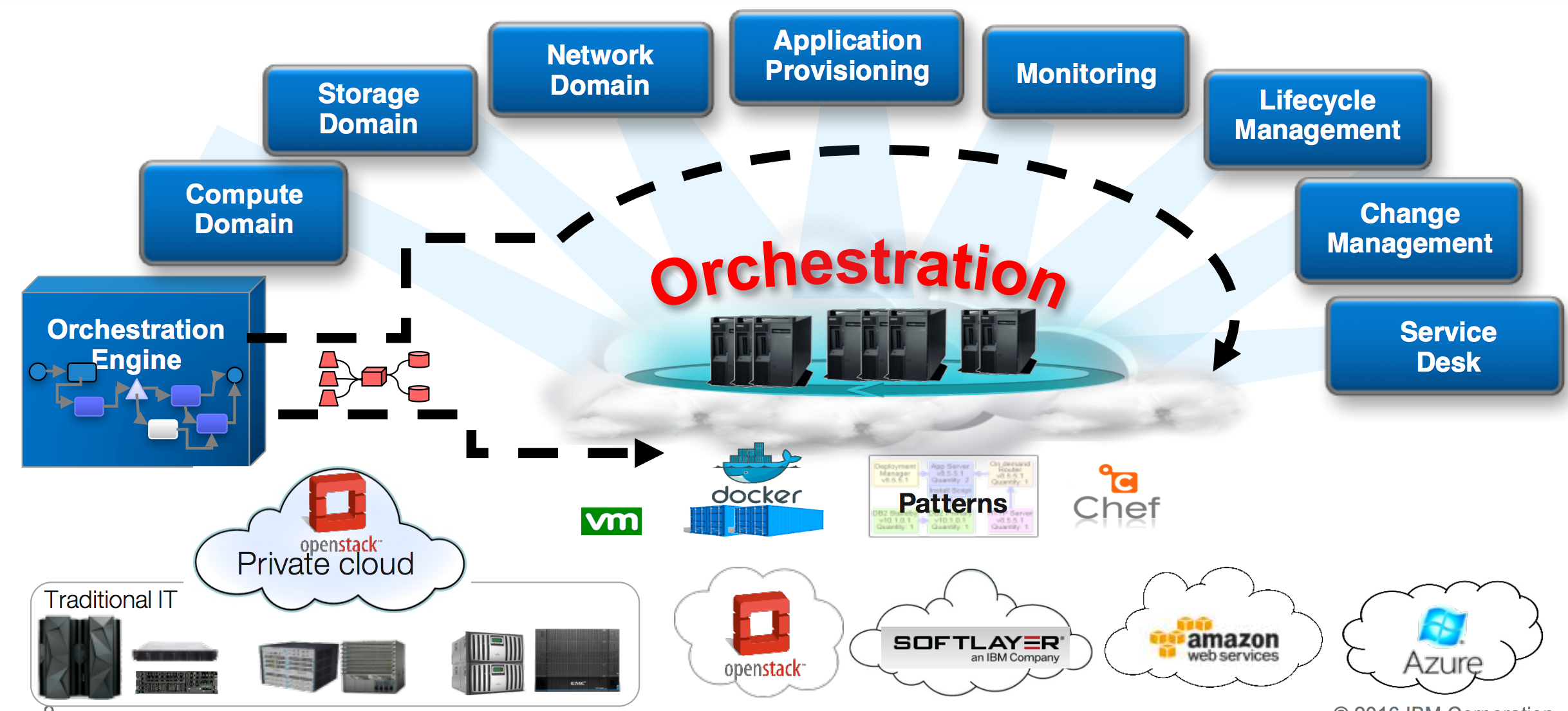Orchestration has become a hot topic for Infrastructure and Operations (I&O) Datacenter folks. While there were promises of Orchestration in the private cloud environment, in the past year these promises are becoming reality. What’s interesting in this space is that the public cloud players don’t have an attractive Orchestration layer (i.e., Azure) as they prefer to remain within their own domain. This has promoted the success of others (such as RedHat, VMWare, IBM, and Cisco) to fulfill the promise of a hybrid cloud while delivering in a private cloud.
An Orchestration layer differs from a Brokerage layer, although the two are often confused and have some overlaps. Orchestration is focused on operational support services, includes advanced workflow engine capabilities and includes the means for management consolidation to drive standardization and realize efficiency. Brokerage services are related to the business support services, provide intermediation between various clouds (private single-hold, private multi-host, public, and SaaS providers such as Oracle, etc.) and provide consistent and centralized purchasing and billing while ensuring business rules including budget and cost management are met across multiple cloud environments.

In the figure above, the various components of orchestration are highlighted. Note the Engine starts with hardware, such as Compute, Storage, and Network. Then, the components move to application provisioning and end with management functions such as Monitoring and Lifecycle Management. The process ends with a Service Desk Integration.
Utilizing a Hybrid Cloud environment ensures that vendor lock-in is prevented. Utilizing a Brokerage layer over the Hybrid Cloud ensures that control is retained while user flexibility is maintained (thereby negating the need for shadow IT).
Watch this space for more on the Orchestration and Brokerage components for Hybrid Cloud!
Author: Petra Kopp, IBM Distinguished Engineer
References (Figure): https://w3-03.sso.ibm.com/sales/support/skp/k/u/e/n/kup12596usen/KUP12596USEN.PDF



